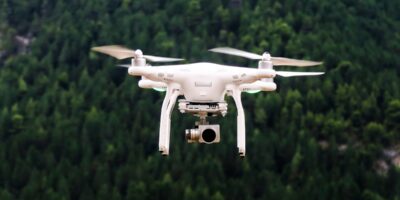
Exploring Career Opportunities with UAS Drones
The drone industry is expanding rapidly. Unmanned Aerial Systems (UAS) are taking on significant roles across different sectors. Their versatility and technological advancements continue to create compelling career opportunities. This article delves into various UAS drone jobs and the skills required.
Categories of UAS Drone Jobs
UAS drone jobs can be classified into several categories depending on the application. Popular sectors incorporating drone technology include agriculture, construction, public safety, environmental monitoring, and media.
Agricultural Drones
Drones are transforming agricultural practices. They are equipped with sensors and imaging capabilities to gather real-time data. Farmers use this data to monitor crop health, soil conditions, and optimize resource use. Jobs in this field involve operating drones to conduct surveys and analyzing the data collected to improve agricultural outputs.
Construction and Infrastructure
Drones in construction are making surveying and site inspections faster and more efficient. They provide aerial views of sites, creating accurate maps and 3D models. Drone operators in this sector must be proficient in mapping software and understand construction workflows.
Public Safety and Emergency Services
Emergency response teams are increasingly using drones for search and rescue missions, disaster management, and traffic accident assessments. Drones provide quick access to critical areas without putting personnel at risk. Skilled operators are needed to pilot these drones and interpret data for real-time decision-making.
Environmental Monitoring
Drones help in environmental conservation efforts by tracking wildlife, monitoring ecosystems, and assessing environmental impacts. Work in this area often requires knowledge of ecological systems and expertise in remote sensing technology.
Media and Film Production
The film and media industry utilizes drones to capture stunning aerial footage that would be challenging or impossible with traditional methods. Cinematographers and photographers with drone piloting skills are in high demand.
Required Skills and Certification
While the UAS industry offers diverse opportunities, entering the field requires specific skills and certifications. Here’s what aspiring drone professionals should consider:
Pilot Certification
- In many countries, operating drones commercially necessitates a pilot’s license.
- Pilot certification ensures operators understand airspace regulations and safe drone operations.
Technical Proficiency
- Understanding drone hardware and software is essential.
- Familiarity with data processing tools and Geographic Information Systems (GIS) is often required.
Industry-Specific Knowledge
- For sectors like agriculture or construction, knowledge of specific domain software and workflows is beneficial.
- Environmental monitoring requires an understanding of ecological parameters and remote sensing.
Challenges in the Drone Industry
The growing UAS industry faces several challenges. Navigating these can be crucial for professionals looking to succeed.
Regulatory Challenges
Regulations surrounding drone usage vary widely. Inconsistent rules across regions can complicate operations. Staying updated with local and international regulations is crucial for compliance.
Privacy Concerns
Drones have raised privacy issues. Concerns about surveillance and data security are prevalent among the public. Drone operators must adhere to ethical standards and respect privacy laws.
Future Prospects of Drone Jobs
The future of UAS drone jobs looks promising. Technological advancements continue to expand the potential applications for drones.
Automation and AI Integration
Integration with AI is pushing the boundaries of drone capabilities. Automated drones can conduct operations with minimal human intervention. This revolution is creating new job roles involving AI and machine learning expertise in conjunction with piloting skills.
Growing Demand in Healthcare
Drones are being tested for delivering medical supplies to remote locations. Jobs focused on medical logistics and supply chain optimization are likely to emerge as healthcare organizations adopt drone technology.
The UAS drone job market is vibrant and evolving. As industries embrace drones, the demand for skilled professionals will increase, offering numerous career paths and opportunities for growth in this dynamic field.
Recommended Drone Gear
ASA Remote Pilot Test Prep – $19.95
Complete prep for the FAA Part 107 exam.
Drone Pilot Log Book – $7.99
Track your flights and maintain compliance.
As an Amazon Associate, we earn from qualifying purchases.



